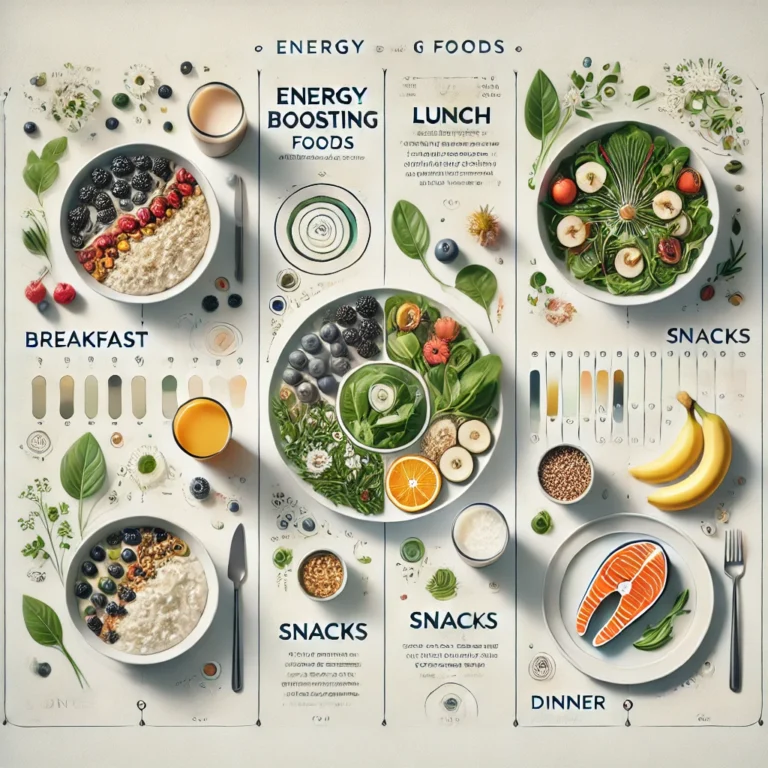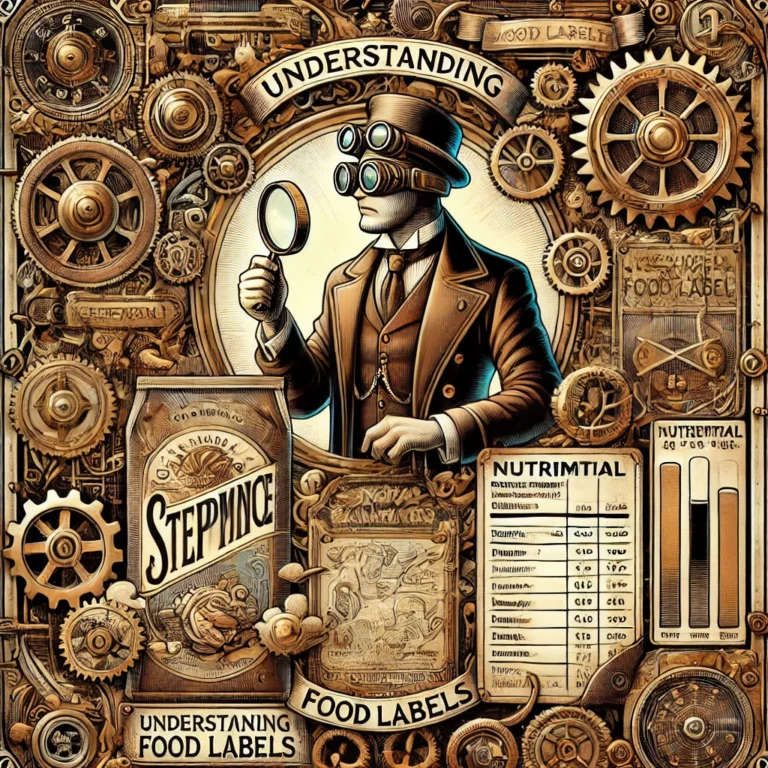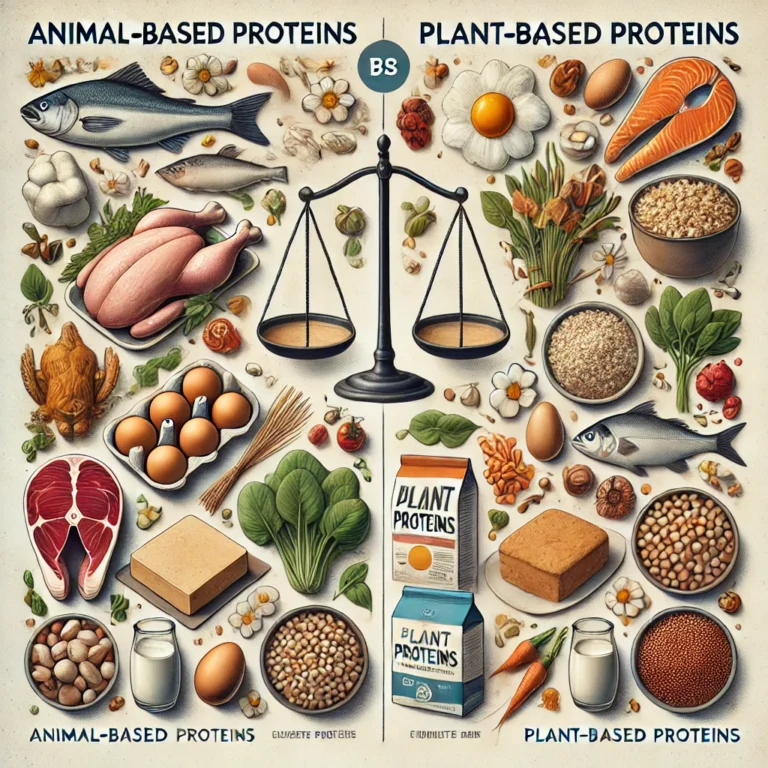Is Sugar Addictive
*This post may contain affiliate links for which I earn commissions.*
Addiction is a word we often hear often, but when we talk about sugar addiction do we really know what it means. I mean addiction is for hard drugs, or is it ? On one hand, there’s physical addiction, where the body becomes dependent on a substance, leading to withdrawal symptoms if it’s suddenly removed. On the other hand, psychological addiction manifests in cravings. and a strong desire to repeat certain behaviors or consume specific substances, despite knowing the potential harm. Sugars are usually added to make foods and drinks taste better. But such foods are high in calories and with none of the health benefits of fruits. Sugar-sweetened drinks like soda, energy drinks, and sports drinks are the leading source of added sugars in the American diet.
The brain treats all addictions equally
Addiction isn’t limited to illicit drugs or alcohol. There are also addictions to behaviors as well such as a shopping addiction, or a gambling addiction. These addictions all share commonalities. In the short-term they create pleasure but in the long term there is rarely a happy ending, unless you deal with the problem.
The core of any addiction is the conflict. The struggle to control the behavior even when it massively negatively impacts your life.
Medical professionals diagnose addiction using very specifically defined criteria. These include an increasingly strong compulsion for the addictive substance. Difficulty controlling its use, and continuing to use it despite potentially devastating consequences.
Understanding the criteria for addiction and how they can possibly apply to sugar consumption is the key to determining if you can ever be addicted to sugar.
Sugar and the Brain: How Sugar Affects Brain Chemistry
When eating sugar, the brain’s response remarkable but not unique. Sugar firstly, activates the brain’s reward system, releasing dopamine. This is a neurotransmitter associated with pleasure and reward.
To put it simply, when you have that tiny piece of chocolate or a sweet sugary sickly soda your brain lights up with pleasure signals. You may be surprised to know that this is no different from what happens in your brain, when you take cocaine or nicotine.
Granted the scale may differ, but the mechanism is the same.That shocked me to the core when I did my psychology degree. I mean it’s sugar right how can it be that harmful.
This dopamine whack makes us feel good and it immediately reinforces the desire to ram down more sugar. Whether or not we are addicted to sugar, I am sure we have all at some point opened a packet of cookies and scoffed the lot. I hold my hands up even if you won’t.
Over a period of time, some people find their brain craves more sugar to achieve the same feelings of pleasure. So we eat more and more of it, not much different from cocaine. We get an increased tolerance which means the brain demands more to get the same result. The original euphoric result doesn’t happen because of the over stimulation of dopamine receptors.
Sugar consumption can influence other brain neurotransmitters like serotonin, which basically affects your moods. There is no doubting a sugar hit has offered us all a temporary emotional boost, but inevitably it leads to a sugar crash. This has an immediate affect on our physical energy and mood. Knowing the science behind these cravings can empower us to make more mindful choices about our die
Scientific Studies on Sugar Addiction: What Does the Research Say?
Scientific studies have shown that sugar can have a strong impact on the brain, the same as illegal addictive substances. For instance, one study found that rats often chose sugar over cocaine. Granted rats, aren’t humans, but I think whatever our age, we can all agree, eating sugar is rewarding. Because of this, it might be smart to at least be aware of how much sugar you eat. The research is still ongoing, but there seems to me to be enough evidence to suggest that sugar is addictive, and I am looking at it as a psychologist and not a chef. Although I have bene been both in my lifetime.
However, the debate about sugar addiction has not been settled to everyone’s satisfaction, partly because the media do not report that it does the same thing to the brain as alcohol addiction. Some researchers argue that the concept of sugar addiction in humans is infinitely more complex. Unlike drugs, sugar is a necessary part of our diet in moderation, which they argue complicates the discussion. It’s true the brain needs glucose for energy. And glucose is sugar.
if the brain does not get enough glucose, we can’t think straight, there is a definitive cognitive impairment. This also means our memory becomes temporarily impaired. And to make it worse we don’t learn as easily.
Another bone of contention is that many studies have been done on animals and there is a big leap from what goes on in mice and what might happen to human’s. Fortunately for the food industry it is illegal to force potentially addictive substances into humans in the name of research (though it wasn’t in the 70’s)
On the other hand, certain human studies show that high sugar consumption can lead to withdrawal symptoms identical to those of addictive substances. These symptoms include but are not exclusive to irritability, headaches, and cravings. But we will never be able to prove that sugar triggers addictive responses in humans but we can see what it does on a brain scan.
Ultra processed foods contain high levels of sugar and fat, both of which makes them more appealing to most people than a stick of celery.
These food products are deliberately and cynically made to be palatable, ergo profitable. Therefore we overeat them and this relationship between fat and sugar complicates the question as to whether sugar is addictive.
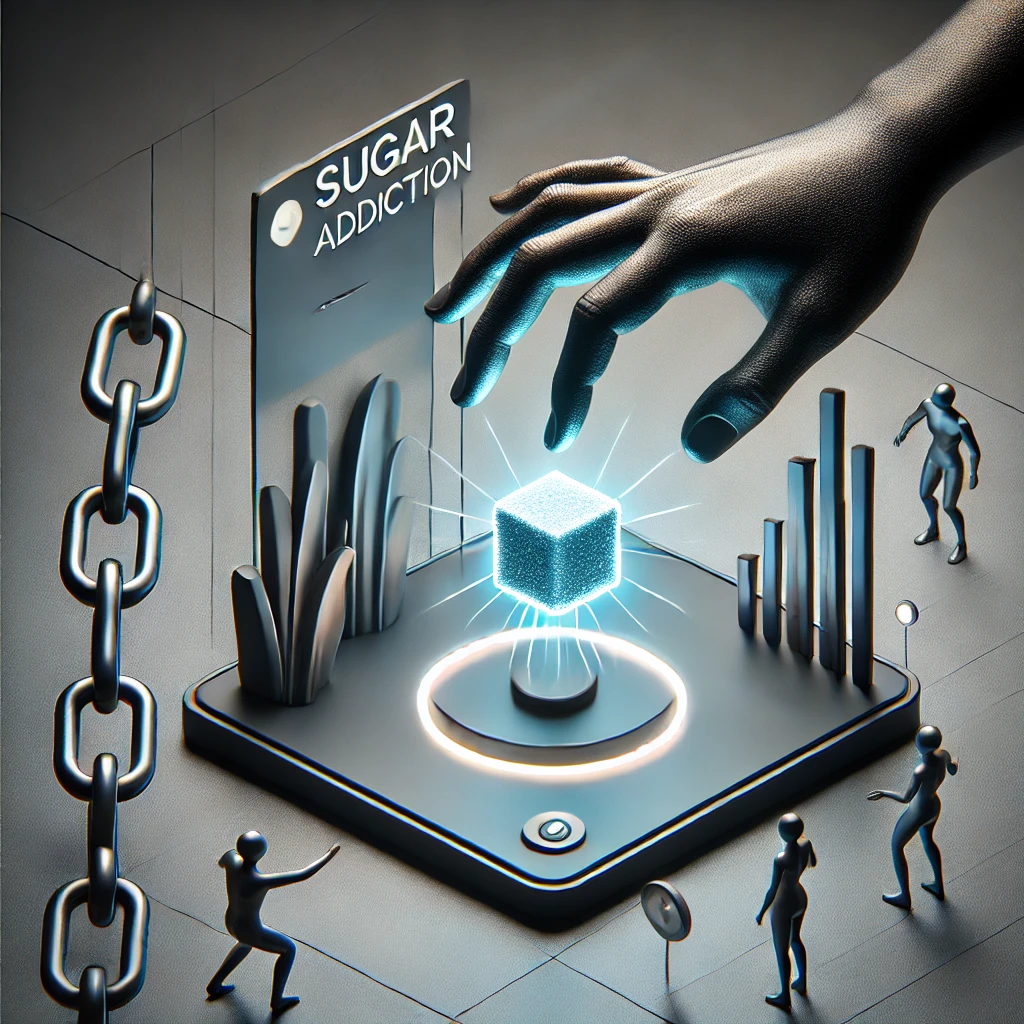
On the other hand, certain human studies show that high sugar consumption can lead to withdrawal symptoms identical to those of addictive substances. These symptoms include but are not exclusive to irritability, headaches, and cravings. But we will never be able to prove that sugar triggers addictive responses in humans but we can see what it does on a brain scan.
Ultra processed foods contain high levels of sugar and fat, both of which makes them more appealing to most people than a stick of celery.
These food products are deliberately and cynically made to be palatable, ergo profitable. Therefore we overeat them and this relationship between fat and sugar complicates the question as to whether sugar is addictive.
if you have any thoughts, opinions or questions on the debate as to whether sugar is addictive feel free to leave a comment in the comment section below.
“Sugar is the new fat: a substance so addictively tasty that our bodies simply can’t handle it in large amounts.”
Michael Moss, Author of “Salt Sugar Fat: How the Food Giants Hooked Us”.
The Behavioral Evidence: Patterns and Signs of Sugar Dependency
Observing your behavioral patterns are important when trying to identify potential sugar dependency. When you find yourself frequently craving sweets, especially when stressed or bored, this can be a sign of sugar dependency. You are using sugar as an emotional crutch. Reaching for sugary snacks and telling yourself they will make you feel better often indicates what is a habit rather than a physical need for energy.
Another tell-tale sign is the inability to reduce sugar even when you want to. A lack of control is a classic hallmark of addictive behavior. Every alcoholic starts out to just have one drink.
Emotional responses to sugar always leave clues. When you feel anxiety, restlessness, or irrational irritability when trying to cut down, this may be a warning sign. Most normal people use sugar as an emotional crutch. We have all turned to sugar to soothe negative emotions. In my book, this is no different to using alcohol or smoking a cigarette.
Physical signs are as important. Pay more attention to those frequent headaches tiredness, and weight gain. You may be having these symptoms as a result of too much sugar. Some people also experience a ‘sugar high’ followed by a crash, this creates a spiral, which leads to more cravings.
The chances are overcoming a dependency on sugar is easier, when you do it as a community effort. With friends or as a family, that way you all get the health benefits.
“I try to not eat as much sugar, but it’s so hard in our American diet to do that…It’s hard to completely avoid.”
Tom Brady.
Health Implications: The Consequences of Excessive Sugar Consumption
Eating too much sugar carries serious long term and short term health risks, In the short term, high sugar intake will lead to energy spikes followed by crashes. This in turn causes fatigue and irritability. This roller-coaster effect can leave you reaching for more sugar to regain that initial quick burst of energy. This of course, creates a vicious cycle.
Those energy crashes are just the tip of the iceberg. In the Long term, excessive sugar consumption is linked to a plethora of chronic health problems. One of the best known is Type 2 diabetes. repeatedly eating too much sugaoften leads to insulin resistance. You might nor know what that term means.
Insulin resistance is a medical condition where the body’s cells become less responsive to the hormone insulin. Normally, insulin helps cells absorb glucose (sugar) from the bloodstream to use as energy. However, when cells are insulin resistant, they don’t respond as well, so the body needs more insulin to do the same job. Most if not all people will develop type 2 diabetes if they dont control insulin resistance.
Heart disease is another undisputed risk. Diets high in sugar often raise your blood pressure, they increase inflammationin the body, and lead to weight gain. All of these are high risk factors for heart disease. Oh yes, and to add insult to injury, sugar drives your cholesterol and triglycerides levels higher. It will come as no surprise that that is not good cholesterol.
Excessive sugar has been shown in many studies to cause mood swings, anxiety, and even depression. There is no idsputing the fact that that sugary treat offers a temporary moodboost, but the crash that follows can leave you feeling more down than when you started. We live in uncertain times, and our mental health may be fragile and it needs all the help it can get.
Sugar feeds bacteria in your mouth. Whilst the bactrias are chomping down on the sugar they produce acids that can lead to erosion of your tooth enamel. It can also mean increased cavities if you don’t clean your teeth after eating sugar.
These facts are frightening to me, but I am writing this to empower you to make your own choices about your sugar consumption.
Breaking Free from Sugar Addiction: Effective Strategies and Treatments
Reducing sugar intake can be challenging but not impossible. Start by gradually cutting back on sugary foods and drinks. Eliminate all sodas from your diet. Swapping out high-sugar items for healthier alternatives can ease the transition.
Low-sugar sodas, often sweetened with artificial sweeteners, are marketed as healthier alternatives to regular sodas. However, several factors suggest they might still be detrimental to your health. Firstly, artificial sweeteners like aspartame, sucralose, and saccharin are linked to various health concerns, including potential long-term effects that are still being researched. These sweeteners can also disrupt gut health by altering the microbiota, leading to digestive issues. Additionally, some studies indicate that artificial sweeteners might interfere with blood sugar regulation, increasing the risk of metabolic disorders like type 2 diabetes.
Another concern is that artificial sweeteners can increase cravings for sweet foods and beverages, which may lead to higher overall calorie consumption and, paradoxically, weight gain. This is further complicated by some research suggesting an association between low-sugar soda consumption and obesity, possibly due to increased appetite and altered metabolic responses. Moreover, despite being low in sugar, these sodas are highly acidic, which can erode tooth enamel and contribute to dental problems such as cavities and tooth decay.
Regular consumption of artificially sweetened beverages can also affect taste preferences, making naturally sweet foods like fruits less appealing and fostering a preference for overly sweetened foods. Psychologically, relying on low-sugar sodas as a “healthy” choice might lead to neglecting more balanced and nutritious options. Furthermore, these sodas often contain various chemical preservatives, colorings, and flavorings, whose long-term health effects are not fully understood, raising additional safety concerns.
Nutritionally, low-sugar sodas offer no essential nutrients and can displace healthier beverage options like water, milk, or natural juices, which provide vital vitamins and minerals. In summary, while low-sugar sodas have less sugar, their artificial sweeteners, acidity, potential impacts on metabolism and appetite, effects on dental and gut health, and presence of chemical additives suggest they are not necessarily a healthier choice compared to natural, nutrient-rich beverages.
Focus on whole foods like fruits, vegetables, lean proteins, and whole grains. These foods provide necessary nutrients without the added sugars found in processed snacks and desserts.
Mindful eating can also help. Paying attention to what and when you eat can reduce mindless sugar consumption. Keep a food diary to track your sugar intake and identify patterns.
Therapies and treatments are available for those struggling with severe sugar addiction. Cognitive-behavioral therapy (CBT) can help change the thought patterns that drive sugar cravings. Nutrition counseling can provide personalized advice and support.
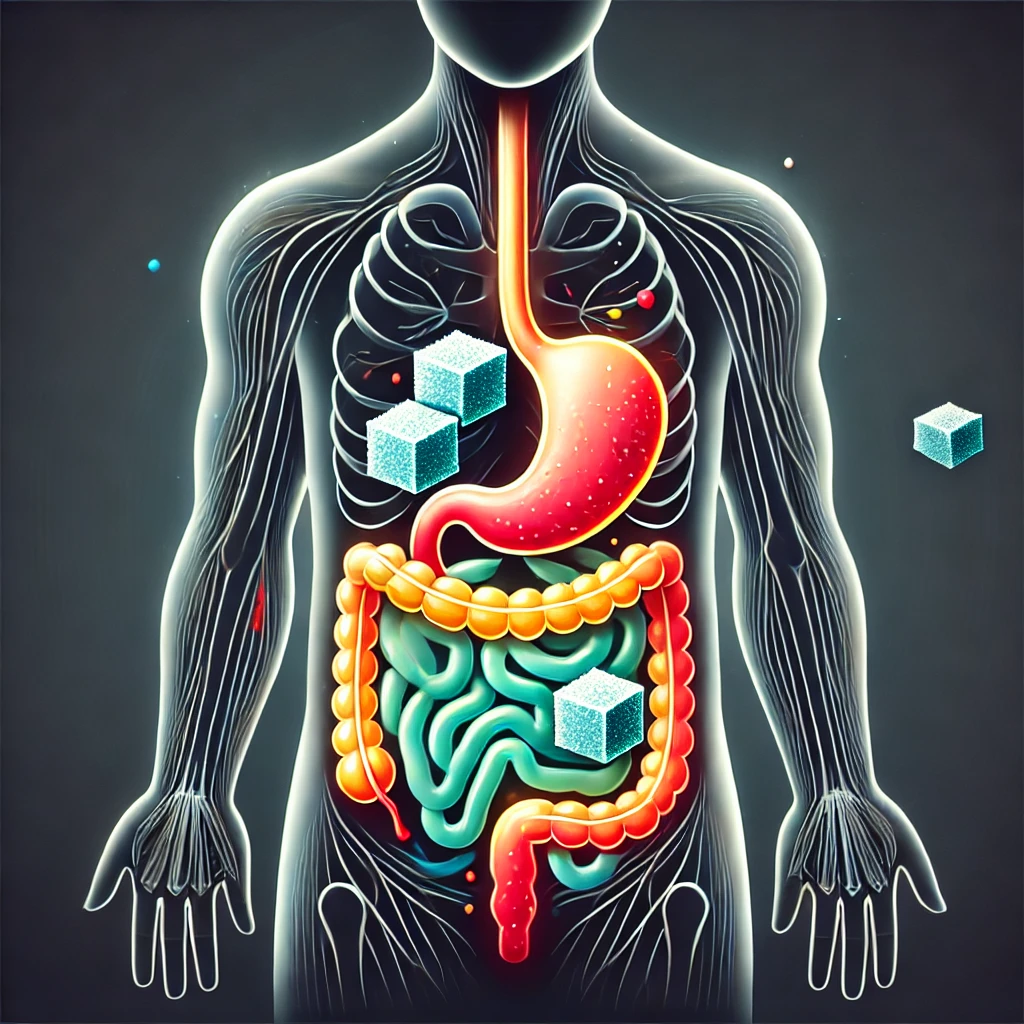
Support groups offer a community of people facing similar challenges. Sharing experiences and tips with others can provide motivation and accountability.Practical tips include reading food labels to identify hidden sugars, staying hydrated, and ensuring you get enough sleep. Often, fatigue and thirst can be mistaken for hunger or sugar cravings.
Building a support system is crucial. Surround yourself with friends and family who understand your goals and can offer encouragement. Informing those around you of your intention to limit sugar can help you stay on track.
Debunking Myths: Misconceptions About Sugar Addiction
Misconceptions often cloud the discussion on sugar addiction, making it hard to discern fact from fiction. One common myth is that all sugars are equally bad and addictive. In reality, the body processes natural sugars found in fruits, vegetables, and dairy differently than the added sugars in candy and soda. Natural sugars come with fiber and essential nutrients that slow absorption and mitigate their impact on blood sugar levels.
Another widespread belief is that sugar addiction is purely about willpower. Sugar cravings can be driven by various factors, including genetics, stress, and hormonal imbalances. It’s much more complex than simply lacking self-control.
Some believe that eliminating sugar entirely is the best approach. While reducing added sugars is beneficial, it’s almost impossible and unnecessary to cut out all sugars, given their presence in many nutritious foods. Focus on reducing refined and added sugars while still enjoying naturally occurring sugars in moderation.
It’s also misleading to think that artificial sweeteners are a perfect substitute. Although they provide the sweet taste without the calories, they’re not necessarily healthier. Some studies suggest artificial sweeteners can still trigger cravings and have other health implications.
Clarifying these misconceptions can empower us to approach sugar consumption more mindfully and make informed decisions based on accurate information rather than myths.
Expert Opinions: Views From Nutritionists, Psychologists, and Health Professionals
Nutritionists emphasize the importance of a balanced diet in managing sugar intake. They often recommend focusing on whole foods while being mindful of hidden sugars in processed items. Nutrition professionals can also help develop personalized meal plans that satisfy your sweet tooth in healthier ways.
Psychologists shed light on the emotional aspects of sugar consumption. They recognize that stress, anxiety, and boredom can drive people to reach for sugary foods. Therapy can provide strategies to manage these triggers and build a healthier relationship with food.
Health professionals, including doctors and dietitians, acknowledge the addictive potential of sugar but highlight that not everyone will experience dependency. They stress the significance of moderation and understanding your body’s unique response to sugar.
Differences in opinions among professionals are common. Some experts firmly classify sugar as addictive, citing its impact on brain chemistry and behavior. Others argue that while sugar can lead to unhealthy eating patterns, it doesn’t meet all criteria of addiction. Understanding these viewpoints can help you form a balanced perspective.
Recommendations from experts often include practical tips such as reading food labels for hidden sugars, setting achievable goals to reduce sugar intake, and seeking support from healthcare providers. These actionable insights can guide healthier dietary choices.
Conclusion on Is Sugar Addictive?
When it comes to sugar, knowledge is your best ally. Awareness of how sugar affects the brain, coupled with the behavioral signs of dependency, can inform your dietary choices. Recognizing the health implications and the role of genetics, emotions, and stress in driving sugar cravings is crucial. Gradually reducing sugar intake and embracing a diet rich in whole foods can significantly improve well-being. Leveraging expert advice from nutritionists and psychologists can offer tailored strategies to navigate cravings and establish healthier habits. Moderation and mindfulness are key. Staying informed and making conscious decisions about sugar consumption empowers you to take control of your health. Though cutting down on sugar can be challenging, the benefits are substantial, leading to better physical and mental health.
Frequently asked Questions Is Sugar Addictive?


